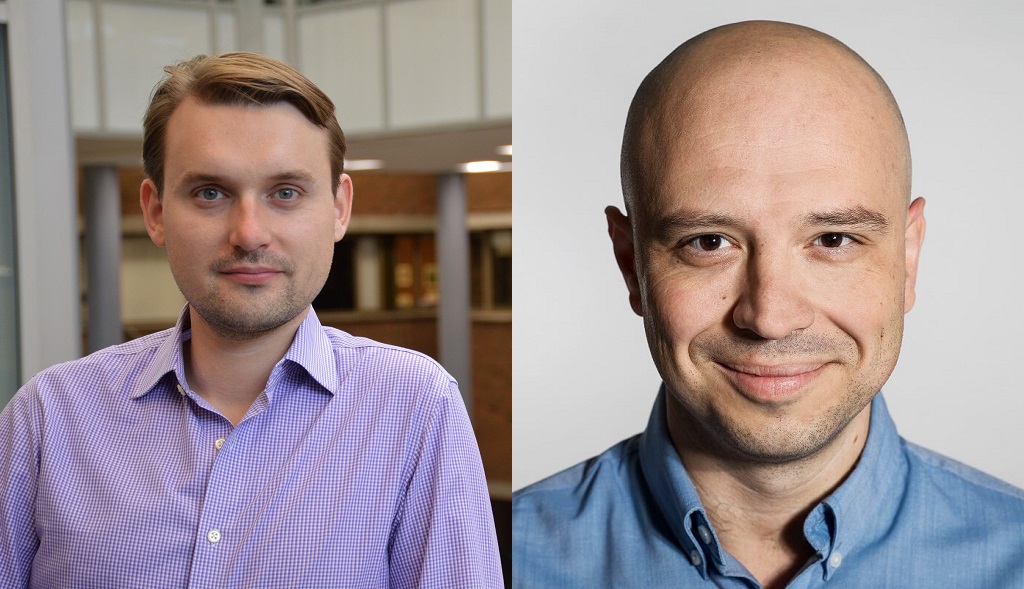Canadian experts discuss Russia's latest military buildup and Ukraine's future steps.
Olena Goncharova, Special to NP-UN.
As Russia continued to amass troops near Ukraine's border despite western leaders urging Russian President Vladimir Putin to de-escalate tensions, the new webinar by Ukrainian Canadian Congress “Escalation of Russia's Aggression against Ukraine” came in especially timely.
The webinar, which took place on Dec. 14, brought together Alexander Lanoszka, Assistant Professor of International Relations at the University of Waterloo, and Dr. Balkan Devlen, Senior Fellow, MacDonald Laurier Institute who discussed the current situation and what Ukraine’s next steps should be.
Alexandra Chyczij, UCC National President, who delivered the opening remarks, voiced her concern over how many international news outlets are still unsure of how to characterize the war in Ukraine and remain reluctant to unequivocally identify Russia as the aggressor. Despite the avalanche of headlines posing the same question “When will Russia invade Ukraine?” it’s important to understand, she argues, that Russia has already invaded Ukraine and there has been a shooting war in the Donbas since 2014.
“Every day Ukrainian soldiers defending their territory are being shot at, killed or wounded. This latest military buildup is just a continuation of the war Russia has been waging in Ukraine since 2014,” Chyczij said. “This war and build-up is showing Russia’s desire to once again subjugate Ukraine, but it’s also about the rules that govern the international order which Russia seeks to upend.”
The UCC national president is certain that basic rules of law of the international system are at stake here since “one country can’t change the borders of another country by force and one country can’t exert a sphere of interest over others” and that is what Russia is purporting to assert. “If we let this happen, then an entire system that provides for stability, that prevents war from breaking out is in danger.”
Lanoszka of the University of Waterloo warned that “the war aims and the goals of the Russian course of diplomacy are much more expansive” than often discussed in the western media.
In his opinion, Russian leaders have difficulty reconciling themselves with the notion that Ukraine is an independent sovereign state, capable of deciding its domestic and foreign policy. It stemmed from Ukraine’s desire to align more with Euro-Atlantic institutions.
“Russian foreign policy regarding Ukraine since 2014 has largely been a failure because Russia is losing its political levers over that country,” Lanoszka said. “And a military buildup is, perhaps, a desperate effort to reverse that very failure.”
The Kremlin knows that because of the internal division within the alliance, Ukraine’s prospects of joining NATO are dim.
NATO members are certain that Ukraine needs to show more progress in key spheres, including the rule of law and fight against corruption. Earlier this year Putin also issued a strong, new warning that the prospect of Ukraine joining NATO was unacceptable for Russia. He noted it would allow the alliance’s missiles “to reach Moscow and other key targets in western Russia in only seven minutes,” a destabilizing situation that was comparable to Russia putting its missiles in Mexico or Canada.
At the same time, the substance of Russian diplomacy in the last two weeks articulated a “grandiose vision of European security,” Lanoszka said, that would see Russia playing a privileged security role in central Europe. And the one that might be comparable to NATO’s.
Russia has called for fixed legal guarantees that would relate to repudiation of the 2008 Bucharest summit declaration, non-deployment of offensive strike systems on the territories adjacent to Russia and demanded limits on NATO military exercises as well as limits on navigation in the Black Sea.
“Complimenting this vision is an uptick in anti-Western and anti-NATO rhetoric coming from the Kremlin,” said Lanoszka, who is certain that the West needs to take this rhetoric seriously while assessing Russia’s war aims.
As to whether it can be a bluster, the expert believes that this time Russia has put into place some “significant military forces in multiple vectors on Ukraine’s borders” and the scale of such operations suggests that it’s a “very expensive bluff.”
At the same time, Russia might realize that a full-blown military escalation would be much costlier than leaders in the Kremlin might surmise. As for the western reaction, he said, it’s critical to communicate the consequences of Russian military buildup on Ukraine’s border and the door must be left open for major economic sanctions.
Devlen of MacDonald Laurier Institute is certain that Ukraine and its western partners need to think about four possible end games. Even though Devlen assesses the possibility of a full-scale invasion at “maybe 15 percent” he said it’s important to understand how this crisis might end – whether with another invasion or compromise or continuing stalemate; what Putin wants; what the future of western and Russian relations is and how Ukraine can ensure firmer integration into Europe.
“What Putin wants is a permanent vassalization of Ukraine with the idea that that would provide Russia with a privileged seat at the table in determining the future of security in Europe,” he said. “Putin tries to ensure that Ukraine can't break free from the Kremlin’s grasp.”
The West needs to think of Russia’s containment strategy and focus on why Ukraine matters. What might help Ukraine, in the meantime, is to ensure firmer integration into Europe, while institutional relations should be strengthened and deepened with countries like Sweden and Finland which will embed Ukraine into the Euro-Atlantic structure.
Lanoszka agreed by saying that Ukraine should continue to improve other skill sets and obtain further military and other assistance from NATO countries.
“My main suggestion for Ukraine would be not to lose nerve and remain steady. It should keep standing its ground, not getting too fast into a war mood without giving any excuse for Putin to exploit,” Devlen concluded.
Share on Social Media


































